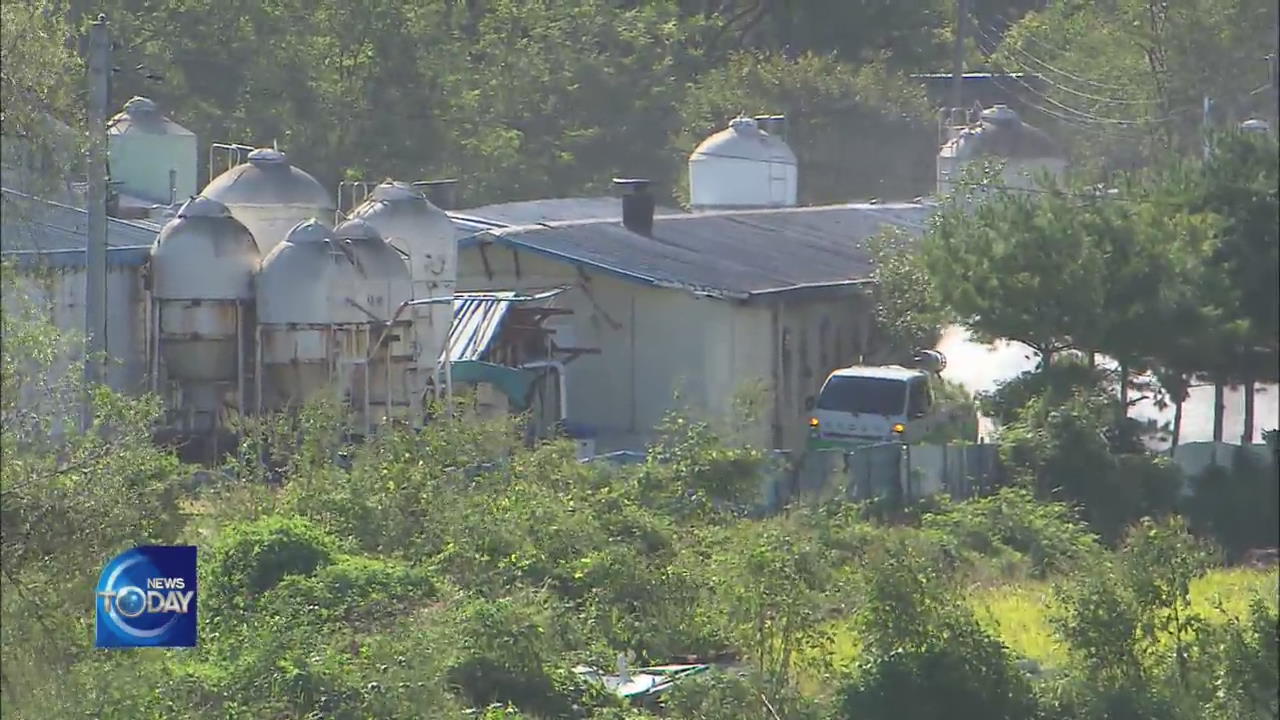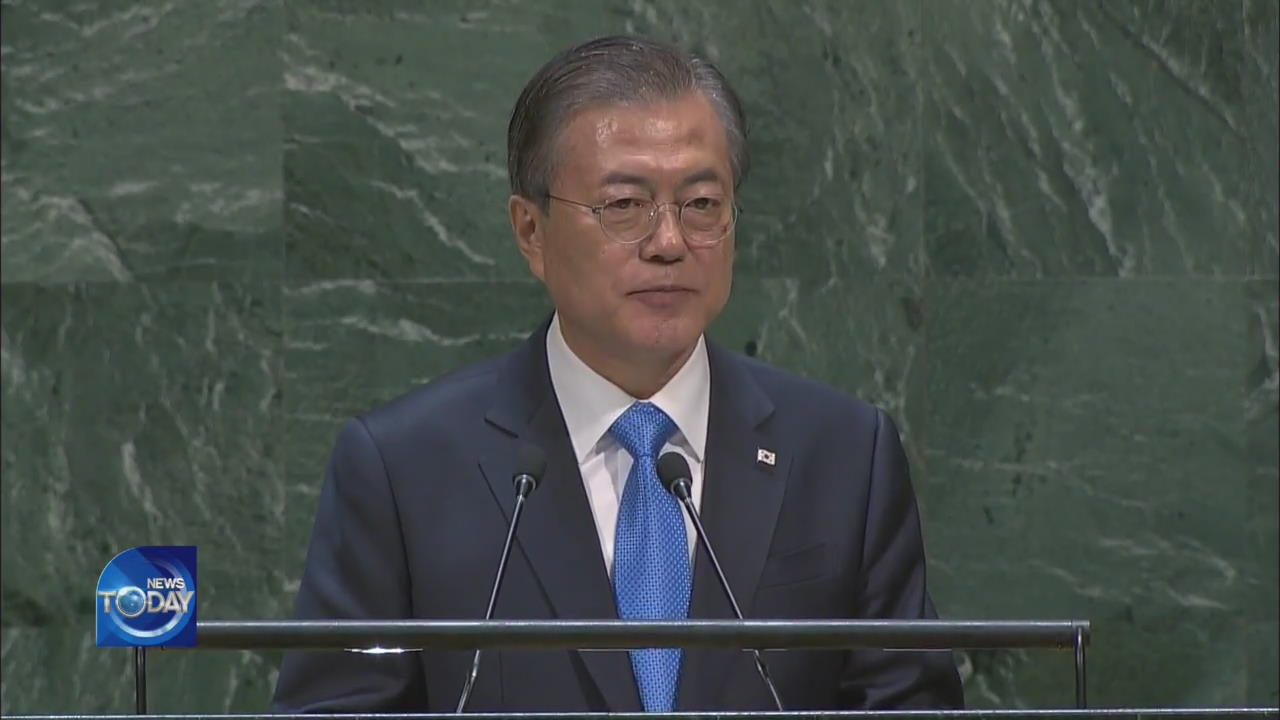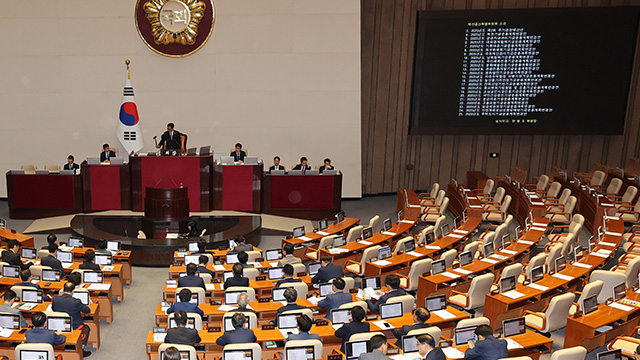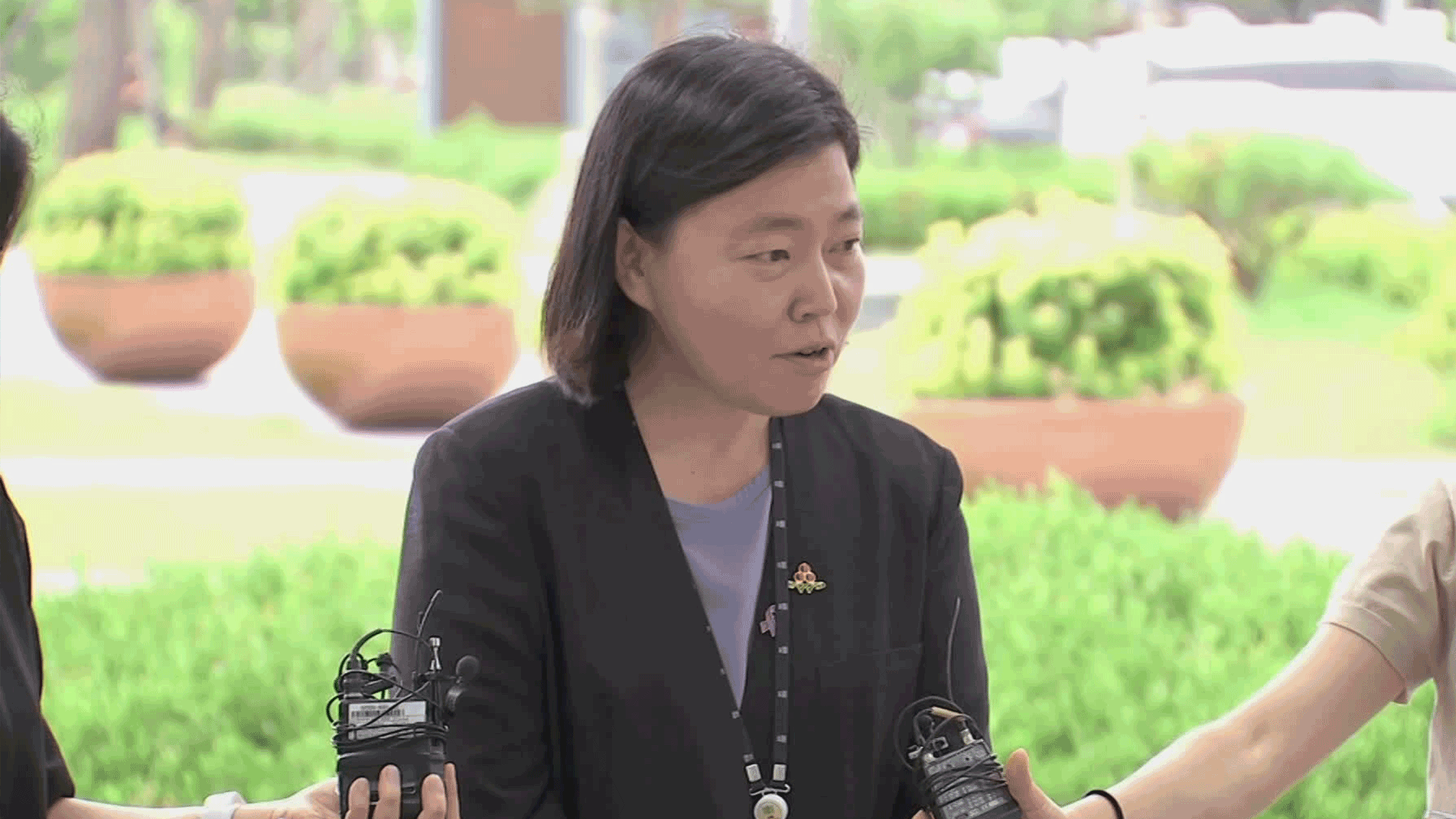SPREAD OF AFRICAN SWINE FEVER
입력 2019.09.25 (15:03)
수정 2019.09.25 (16:45)
읽어주기 기능은 크롬기반의
브라우저에서만 사용하실 수 있습니다.
[Anchor Lead]
It's been over a week since the African swine fever broke out in South Korea. The number of infected farms has increased to five. The government has acknowledged quarantine efforts could have been more thorough and issued a 48 hour standstill order, banning the movement of all pigs nationwide for 2 days.
[Pkg]
Since the first case of African swine fever in the country was confirmed on September 17th, four farms in Gyeonggido Province including two in Paju have been infected with the deadly animal disease. A confirmed case from Ganghwado Island in Incheon, brings the total to 5 farms. Prime Minister Lee Nak-yon acknowledged that quarantine efforts were not as complete as they should have been and reprimanded related ministries and agencies, calling for stronger measures.
[Soundbite] LEE NAK-YON(PRIME MINISTER) : "The quarantine measures have not been thorough. We are now in a desperate situation to prevent any further spread."
He called for thorough and even excessive quarantine efforts in a bold and swift manner even if it means skipping over predetermined guidelines. As of Tuesday noon, the government issued a 48 hour standstill order which bans the movement of all pigs nationwide for 2 full days.
[Soundbite] KIM HYEON-SOO(MINISTER OF AGRICULTURE, FOOD & RURAL AFFAIRS) : "The gov't acknowledges the gravity of the situation and will review extending the temporary movement ban for certain regions."
Six cities and counties in northern Gyeonggido Province were placed under special oversight. This has expanded to Incheon and all of Gyeonggido and Gangwondo Province as well. These areas will be divided into 4 sections. The movement of pigs and the transfer of livestock excrement will be restricted for 3 weeks. The government will also carry out sterilization operations in 14 cities and counties as well as riverside roads situated in the border area near North Korea. Control checkpoints in these areas that operated for 14 hours a day will now run around the clock on emergency mode.
It's been over a week since the African swine fever broke out in South Korea. The number of infected farms has increased to five. The government has acknowledged quarantine efforts could have been more thorough and issued a 48 hour standstill order, banning the movement of all pigs nationwide for 2 days.
[Pkg]
Since the first case of African swine fever in the country was confirmed on September 17th, four farms in Gyeonggido Province including two in Paju have been infected with the deadly animal disease. A confirmed case from Ganghwado Island in Incheon, brings the total to 5 farms. Prime Minister Lee Nak-yon acknowledged that quarantine efforts were not as complete as they should have been and reprimanded related ministries and agencies, calling for stronger measures.
[Soundbite] LEE NAK-YON(PRIME MINISTER) : "The quarantine measures have not been thorough. We are now in a desperate situation to prevent any further spread."
He called for thorough and even excessive quarantine efforts in a bold and swift manner even if it means skipping over predetermined guidelines. As of Tuesday noon, the government issued a 48 hour standstill order which bans the movement of all pigs nationwide for 2 full days.
[Soundbite] KIM HYEON-SOO(MINISTER OF AGRICULTURE, FOOD & RURAL AFFAIRS) : "The gov't acknowledges the gravity of the situation and will review extending the temporary movement ban for certain regions."
Six cities and counties in northern Gyeonggido Province were placed under special oversight. This has expanded to Incheon and all of Gyeonggido and Gangwondo Province as well. These areas will be divided into 4 sections. The movement of pigs and the transfer of livestock excrement will be restricted for 3 weeks. The government will also carry out sterilization operations in 14 cities and counties as well as riverside roads situated in the border area near North Korea. Control checkpoints in these areas that operated for 14 hours a day will now run around the clock on emergency mode.
■ 제보하기
▷ 카카오톡 : 'KBS제보' 검색, 채널 추가
▷ 전화 : 02-781-1234, 4444
▷ 이메일 : kbs1234@kbs.co.kr
▷ 유튜브, 네이버, 카카오에서도 KBS뉴스를 구독해주세요!
- SPREAD OF AFRICAN SWINE FEVER
-
- 입력 2019-09-25 15:06:19
- 수정2019-09-25 16:45:20

[Anchor Lead]
It's been over a week since the African swine fever broke out in South Korea. The number of infected farms has increased to five. The government has acknowledged quarantine efforts could have been more thorough and issued a 48 hour standstill order, banning the movement of all pigs nationwide for 2 days.
[Pkg]
Since the first case of African swine fever in the country was confirmed on September 17th, four farms in Gyeonggido Province including two in Paju have been infected with the deadly animal disease. A confirmed case from Ganghwado Island in Incheon, brings the total to 5 farms. Prime Minister Lee Nak-yon acknowledged that quarantine efforts were not as complete as they should have been and reprimanded related ministries and agencies, calling for stronger measures.
[Soundbite] LEE NAK-YON(PRIME MINISTER) : "The quarantine measures have not been thorough. We are now in a desperate situation to prevent any further spread."
He called for thorough and even excessive quarantine efforts in a bold and swift manner even if it means skipping over predetermined guidelines. As of Tuesday noon, the government issued a 48 hour standstill order which bans the movement of all pigs nationwide for 2 full days.
[Soundbite] KIM HYEON-SOO(MINISTER OF AGRICULTURE, FOOD & RURAL AFFAIRS) : "The gov't acknowledges the gravity of the situation and will review extending the temporary movement ban for certain regions."
Six cities and counties in northern Gyeonggido Province were placed under special oversight. This has expanded to Incheon and all of Gyeonggido and Gangwondo Province as well. These areas will be divided into 4 sections. The movement of pigs and the transfer of livestock excrement will be restricted for 3 weeks. The government will also carry out sterilization operations in 14 cities and counties as well as riverside roads situated in the border area near North Korea. Control checkpoints in these areas that operated for 14 hours a day will now run around the clock on emergency mode.
It's been over a week since the African swine fever broke out in South Korea. The number of infected farms has increased to five. The government has acknowledged quarantine efforts could have been more thorough and issued a 48 hour standstill order, banning the movement of all pigs nationwide for 2 days.
[Pkg]
Since the first case of African swine fever in the country was confirmed on September 17th, four farms in Gyeonggido Province including two in Paju have been infected with the deadly animal disease. A confirmed case from Ganghwado Island in Incheon, brings the total to 5 farms. Prime Minister Lee Nak-yon acknowledged that quarantine efforts were not as complete as they should have been and reprimanded related ministries and agencies, calling for stronger measures.
[Soundbite] LEE NAK-YON(PRIME MINISTER) : "The quarantine measures have not been thorough. We are now in a desperate situation to prevent any further spread."
He called for thorough and even excessive quarantine efforts in a bold and swift manner even if it means skipping over predetermined guidelines. As of Tuesday noon, the government issued a 48 hour standstill order which bans the movement of all pigs nationwide for 2 full days.
[Soundbite] KIM HYEON-SOO(MINISTER OF AGRICULTURE, FOOD & RURAL AFFAIRS) : "The gov't acknowledges the gravity of the situation and will review extending the temporary movement ban for certain regions."
Six cities and counties in northern Gyeonggido Province were placed under special oversight. This has expanded to Incheon and all of Gyeonggido and Gangwondo Province as well. These areas will be divided into 4 sections. The movement of pigs and the transfer of livestock excrement will be restricted for 3 weeks. The government will also carry out sterilization operations in 14 cities and counties as well as riverside roads situated in the border area near North Korea. Control checkpoints in these areas that operated for 14 hours a day will now run around the clock on emergency mode.
이 기사가 좋으셨다면
-
좋아요
0
-
응원해요
0
-
후속 원해요
0

















이 기사에 대한 의견을 남겨주세요.